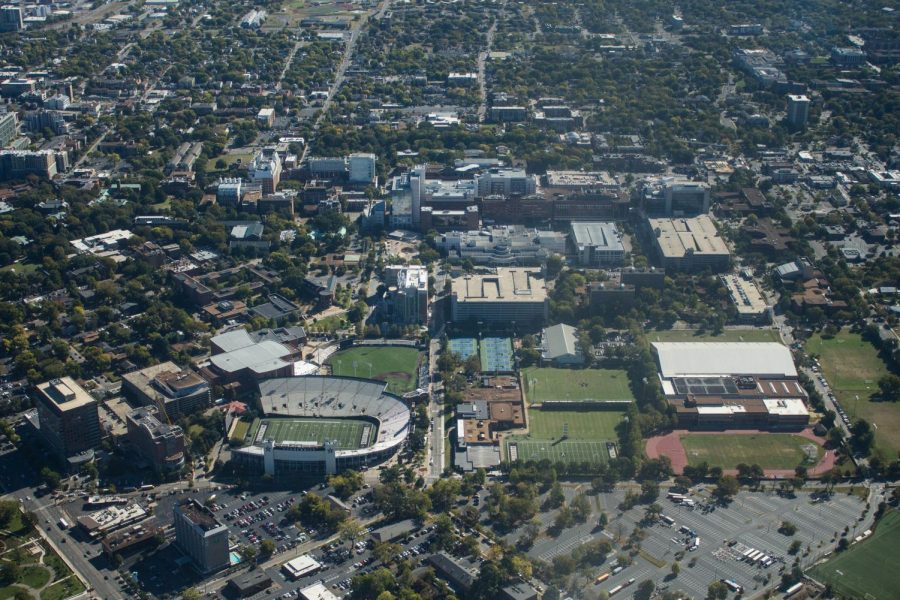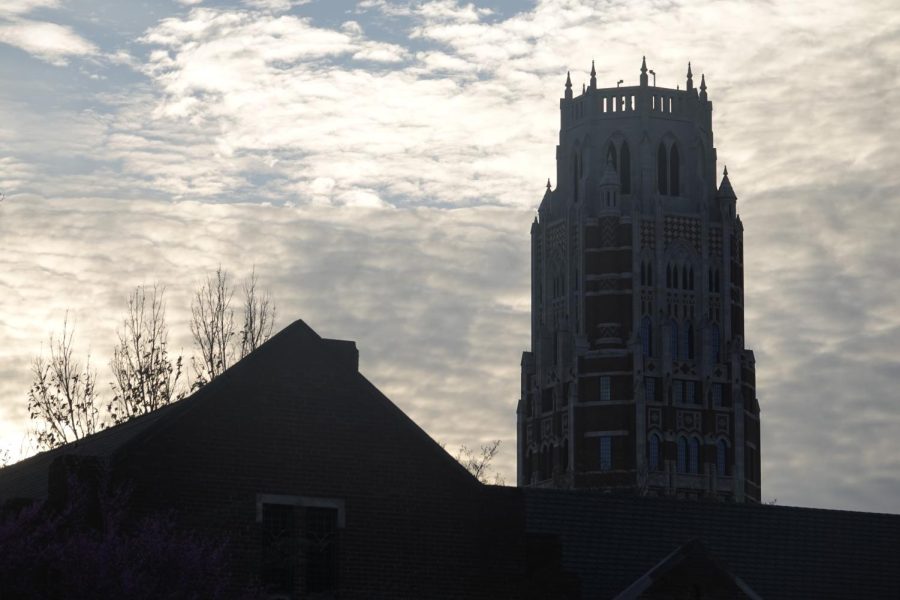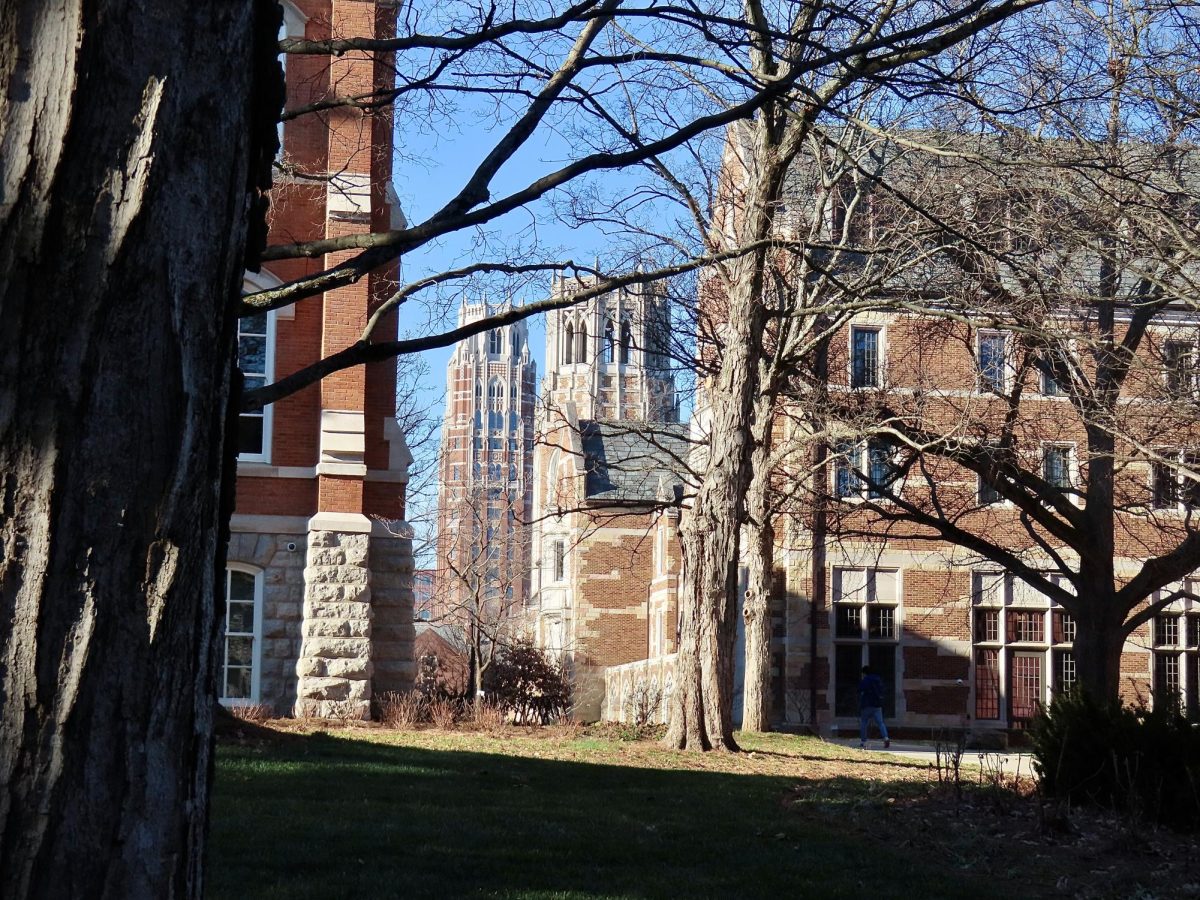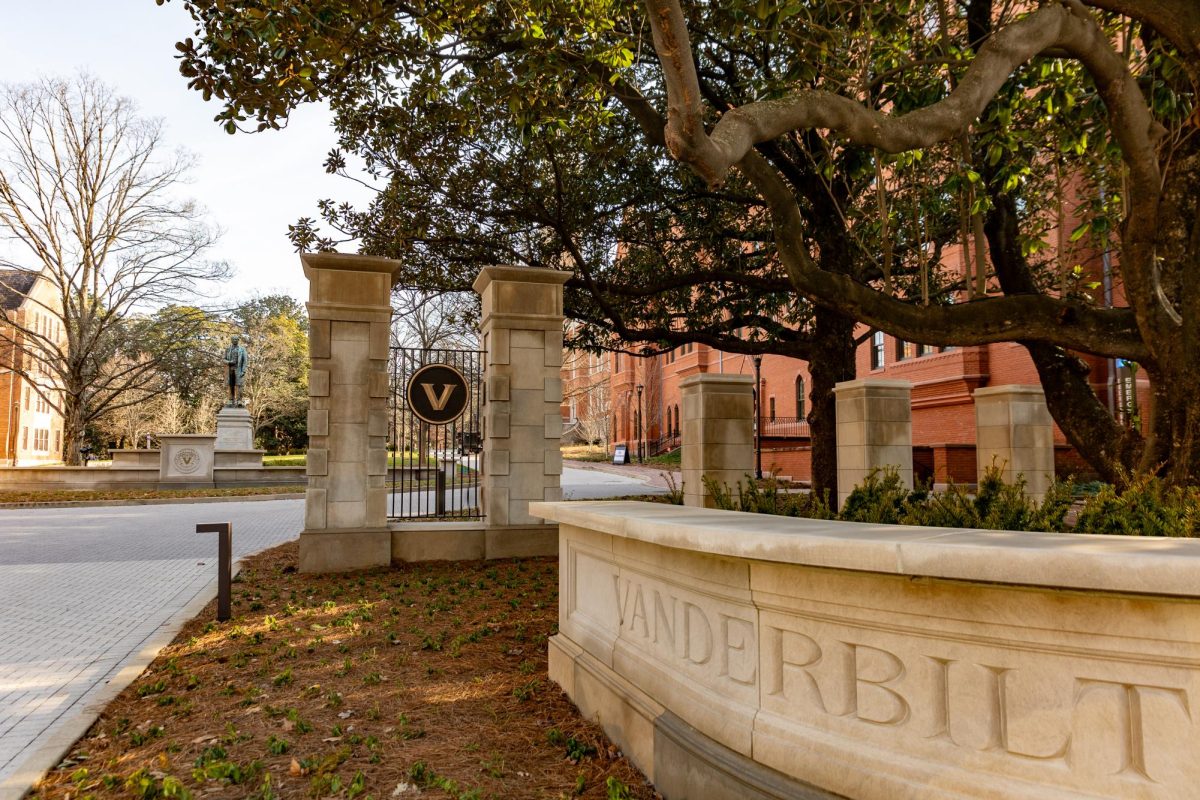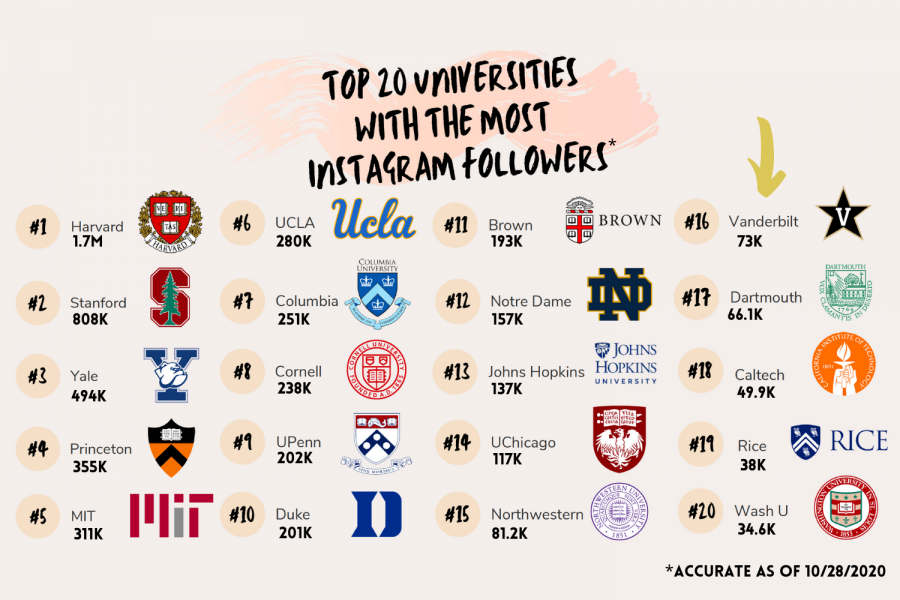The COVID-19 pandemic has forced universities around the world to respond to an unprecedented situation. Most decisions, including about housing, room and board refunds and grading policy, were made within a matter of days. Here’s how Vanderbilt’s response compares to peer institutions ranked in the top 20 of the 2020 US News and World Report’s rankings.
Room and Board Refunds
Among its peer institutions in the Top 20, Vanderbilt is the only one that elected not to distribute prorated room and board refunds.
Northwestern, Princeton and MIT have all promised students prorated refunds of unused housing and dining costs, even for students on financial aid. Yale also committed to providing prorated room and board refunds, per reporting by CNBC. Duke will return prorated room and board, but in the form of credit to the accounts of returning students. Direct refunds will only be given to graduating Duke students or students who choose not to return to campus. Other schools such as Brown have stated they will offer prorated room and board funds based on each family’s contribution to cost of attendance.
According to a Cornell University website, all undergraduate students who departed from campus will receive prorated room and board calculated from March 29 to the end of typical housing contracts.
“In order to be fair to all campus residents, regardless of their opportunities to travel, we have based all housing assistance on the deadline set by President Pollack which directed all undergraduate students living in on-campus housing to leave campus by March 29, unless provided an exemption,” the Cornell website said.
For universities on the quarter system, the switch to online learning arrived at the beginning of a new quarter. Thus, universities like University of Chicago, UCLA and Dartmouth will not charge room and board for spring term, which typically runs from the end of March to early June. In these cases, students who have already paid room and board for the spring quarter may request a direct refund.
Instead of any of these options, Vanderbilt has allotted lump sum housing refunds to students based on when they left campus and their financial aid status, up to 59 percent of what a prorated housing refund would be. According to Vanderbilt’s Coronavirus FAQ, students who left campus by March 17 will receive a housing adjustment of $1,380, students who left between March 18 and 29 will receive $690 and students who left March 30 or later will receive $0.
“Due to the complexity of individual financial aid packages and awards, the methodology for determining financial aid adjustment amounts is dependent on each student’s individual circumstances,” the coronavirus FAQ stated.
Opportunity Vanderbilt students who do not qualify for room and board refunds will also receive relief through the Student Hardship Fund, the university FAQ said. The university has declined to comment or provide more information on refunds and the Student Hardship Fund. A petition for full room and board adjustments to all students regardless of their financial aid status currently has 1,465 signatures.
In contrast to Vanderbilt, which will not refund any student fees, some other universities have chosen to reduce, prorate or eliminate fees associated with the spring semester. Duke, for instance, is offering students a prorated refund for their parking permit fees in the form of credit to their account; graduating students will receive a direct refund of this fee. UCLA has suspended course materials fees associated with spring quarter courses. Stanford has dropped its Spring Campus Health Service Fee for all students who have left campus and reduced its undergraduate student activities fees from $171 to $27. Similarly, MIT has announced it will refund half the student life fee normally charged for the spring semester.
On-campus Student Housing
On March 11, Vanderbilt asked all undergraduate students to move out by March 15. On a required Spring Move-Out Information form, students could indicate if they were unable to depart by that date.
“Students who may need to remain on campus after March 15 will receive further communication,” the announcement said.
Harvard asked students to move out by March 15 as well, though it gave students five days notice instead of four. The school was criticized for the short notice given, especially for its impact on Harvard’s low-income students.
UChicago and Brown gave students slightly more time, asking on March 11 and 12, respectively, that students move out by March 22. Rice asked students on March 12 to move out by March 23.
Meanwhile, some schools, including Duke and Notre Dame were on spring break when the situation erupted. On March 11, Notre Dame announced that the campus would close March 17, saying that students who didn’t move out by that date could move out in May at the earliest. Duke announced March 11 that students should not return to campus, but the university said that students who remained on campus for break had until March 22 to leave.
All institutions noted that further communication would occur with students who might need to remain on campus, though qualifications for such permission varied by school and were often unclear.
Vanderbilt international students with travel, visa or internet access issues, as well as homeless students, are allowed to stay on campus for the spring and summer, according to Vanderbilt’s Coronavirus FAQ. At least one student who requested a housing extension on the basis of having immunocompromised parents reported being denied per reporting by WPLN. According to the FAQ, approximately 250 undergraduates currently remain on Vanderbilt’s campus.
While all of Vanderbilt’s peer institutions have asked students to leave campus, universities vary in how lenient they are with student requests to remain on campus. UCLA, for example, has declared student housing “essential” and stated that Housing and Residential Life services will be available for any student who cannot or does not want to leave.
According to Caltech’s website, “students may petition to remain on campus if they: have a documented health condition that puts them at risk for travel; live in a home community that poses a serious health risk; have concerns about international travel; or have concerns around housing insecurity.”
Similarly, Johns Hopkins University (JHU) announced it would make limited exceptions in cases where international travel restrictions, financial hardship or other extraordinary circumstances prevented students from leaving campus. Students, however, reported struggling with unclear information from JHU Housing, a panicked move-out environment and unnecessarily strict deadlines for move-out.
Notably, over 600 undergraduates have remained on Stanford’s campus, as of a March 25 count. Around 300 have remained on Dartmouth’s campus, according to a university FAQ.
Grading Policy
Vanderbilt, like Princeton, UCLA, Caltech and Cornell, allowed students to opt-in to taking classes pass/fail, leaving letter grades as the default system. If Vanderbilt students choose to take a class pass/fail, they will receive full credit for the class if they receive at least a D-, and the grade will not factor into their GPA. All pass/fail classes can still count towards general education or specific degree requirements. The deadline to declare classes pass/fail was April 10, about a week before the last day of class.
Cornell, which cancelled all classes from March 13 until April 6, has extended its deadline to declare pass/fail to April 21. Similarly, Princeton and UCLA have extended their deadlines to the last weekday before final examinations, May 12 and June 5, respectively.
Vanderbilt sophomore Sarah Fishbein started a petition requesting that the university follow the example of peer universities and extend its pass/fail declaration deadline. The petition currently has 2,441 signatures.
Other universities including Stanford, Northwestern, JHU, Yale, Dartmouth, Harvard and MIT have transitioned all undergraduate classes to a pass/fail (also known as Credit/No Credit or Satisfactory/Unsatisfactory) grading system for the semester or quarter. Duke has transitioned to a default pass/fail system, but students may opt out and choose to receive a letter grade for any class.
In light of these widespread grading policy changes, Harvard Medical School has announced that they will accept pass/fail grading for spring 2020 coursework only if the applicant’s school had transitioned to a universal pass/fail system. Some schools have tried to alleviate the stress of graduate school applications associated with their pass/fail policies. For example, Rice University elected for an opt-in pass/fail system and assured undergraduates they’ll be able to uncover their letter grades for courses they took pass/fail, if needed during graduate school applications.
Student Work
Vanderbilt’s policy for student workers differs based upon what category a student worker falls under. Students employed through Federal Work Study (FWS) will continue to receive normal pay, regardless of their ability to work remotely. Meanwhile, other student workers may continue to be paid if their responsibilities can be completed online or remotely. Resident Advisors (RAs) are not being paid for the remainder of the year, despite signing a contract to receive monthly stipends through the middle of May.
Across the board, peer institutions have employed fairly similar policies. Rice, for example, has also promised normal pay only to students with current work study jobs; unlike Vanderbilt, Rice has opted to pay this as a lump sum amount, rather than in bi-weekly installments.
Both Washington University in St. Louis (WashU) and Princeton have guaranteed continued normal payment to all student workers receiving need-based aid. Duke has promised to continue paying all student workers according to their normal schedules, including students not on financial aid.
As for staff members, Vanderbilt has promised to preserve normal pay and benefits for its staff through the remote work period, until at least April 30, and staff are instructed to log the hours as paid administrative leave. Cornell and Harvard, among others, have also guaranteed all employees their current rate of pay for their regularly scheduled hours.
Commencement
Within days of the transition to online classes, Vanderbilt took decisive steps regarding commencement, announcing on March 25 that commencement and the other graduation programming for the class of 2020 would be postponed until May 2021. Ceremonies would be held separately for the two graduating classes, the university said.
Like Vanderbilt, JHU and UChicago have cancelled in-person graduation ceremonies and invited the class of 2020 graduates to participate in summer 2021 convocation ceremonies. Similarly, Stanford, Rice, Cornell, Harvard, Columbia and the University of Pennsylvania (UPenn) have moved their spring commencement ceremonies to a virtual format, with the possibility of an in-person ceremony sometime in the future.
Notably, two universities on the quarter system, Caltech and Northwestern University, have not yet decided whether to cancel graduation events scheduled for mid-June.
“Our great wish is for these events to occur as planned, but only if we are able to provide students, families, faculty and staff a safe environment in which to gather together to celebrate,” Northwestern said in an April 6 statement.
Athletics
On March 11, the eight Ivy League (Brown, Columbia, Cornell, Dartmouth, Harvard, Princeton, UPenn, Yale) Presidents announced their unanimous decision to cancel all athletics practices and competitions through the remainder of the academic year.
“Given this situation, it is not feasible for practice and competition to continue,” the announcement said.
The following day, National Collegiate Athletic Association (NCAA) cancelled all remaining winter and spring championships. On March 13, the Southeastern Conference (SEC) followed suit, announcing that all athletic activities would be suspended until at least April 15. Four days later, the Southeastern Conference (SEC) cancelled all regular season conference and non-conference competitions for the remainder of the 2019-20 athletic year.
Vanderbilt, like many other schools including Dartmouth and Caltech, has closed its recreation center and gyms until further notice.

